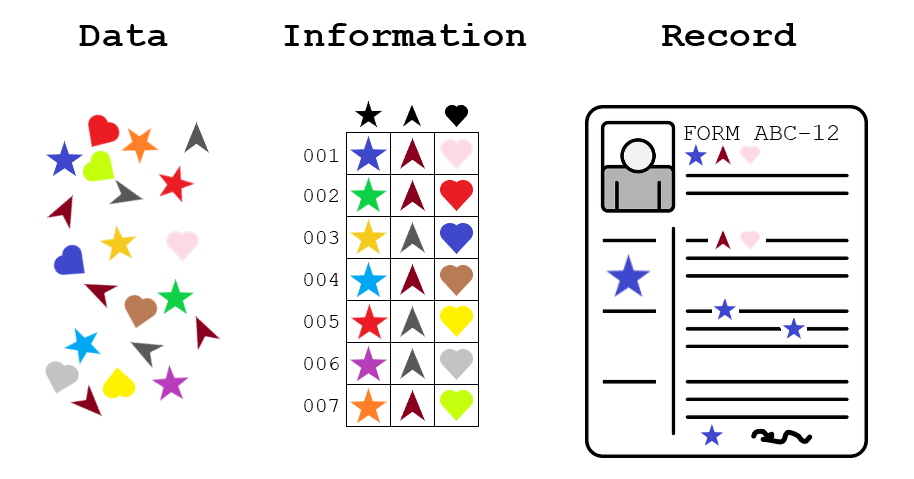This February, doc2e-file had the privilege to attend The 2025 ARMA (Association of Records Managers and Administrators) San Antonio’s Annual Seminar. We had the opportunity to meet, talk, and listen to passionate professionals within the records information industry. The valuable information on records information management, information governance, eDiscovery, and governance challenges learned will be essential to the services we offer our clients. After reflecting on our experience, here are 5 takeaways that doc2e-file took from ARMA San Antonio 2025.

1. Don’t Overcomplicate Information
When writing policies, it is important to distinguish which information is necessary and unnecessary in getting the message across. Overcomplicating information can lead to confusion and misunderstanding. It’s ok that not everyone can understand what the policy says, as long as the people who the policy pertains to understands what it is saying. Long story short, don’t dumb down your information or add unnecessary context so everyone can understand. Policies just need to be understood by those it affects. Do you understand everything a doctor says? No! But they speak in a language that they all know. It is the same with writing policies.
2. Teamwork Makes The Dreamwork (Especially When It Comes To Redoing Inventory)
Conducting inventory on all the records your company holds is an overwhelming task. There can be thousands of papers that span decades of company records, a limited time to do it on top of all of other tasks, and sometimes you can be left in charge with no help. Inventory is a team effort, get everyone involved! Gather information from other departments using interviews and questionnaires to find out what they need. Ensure that top management is supportive of conducting inventory. Update everyone on developments. Use the IT department for help with electronic records, especially with the destruction. Inventory not only helps you, but also everyone else in the company!
3. Recovery Is Essential
Damages happen over time, it’s natural. Fire, water, time, and improper storage, anything can happen to your paper records. Do not dispose of these papers, as they can contain essential business information and data that you might need down the road. If critical documents are lost or damaged, it can lead to legal and financial trouble, especially if companies need these papers for compliance. doc2e-file suggests mitigating damages by digitizing records and backing up digital libraries.
4. Wording (and understanding the differences between each) Is Important
Data, information, and records. Policies, standards, and procedures. Although these words might be used interchangeably, they do not always mean the same thing. It is important to understand the wording used so it can set clear communication across the company so everyone can understand what is expected from them. It reduces ambiguity and informs effective decision making.

5. Continuity Is Essential For Long Term Success
Data continuity is the data that is accurate, usable, and protected over time and ensures that a business can continue without significant interruption in case of emergencies. Data continuity helps make faster and smarter business decisions for both day to day operations and its long term goals by preventing data loss and ensuring that information is accessible and secure.
As we reflect on what we have learned at ARMA San Antonio Annual Seminar, we are reminded that continuous learning is essential in an ever changing industry. These 5 takeaways are just a sliver of the information we learned, and we are excited to integrate this knowledge in our work. Attending conferences like these builds community within the industry and seeing our South Texas peers devoted to learning and growing was inspiring. Thank you from doc2e-file who attended, organized, and spoke at ARMA San Antonio Annual Seminar!